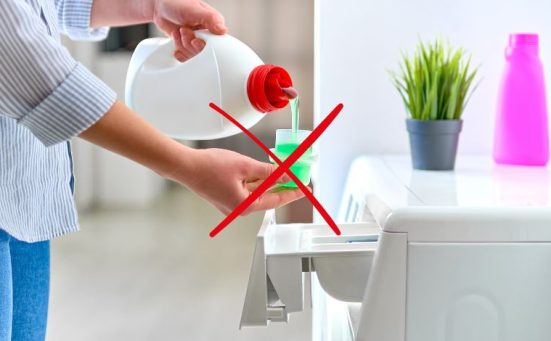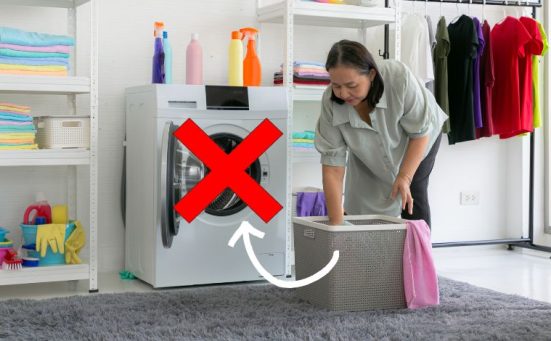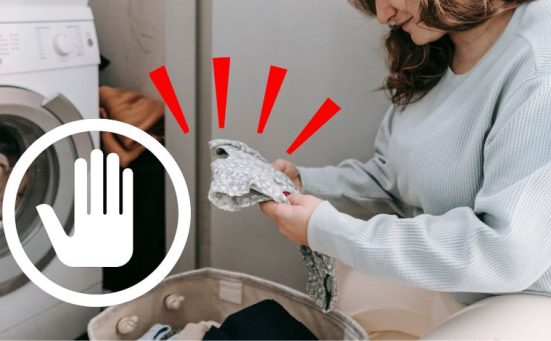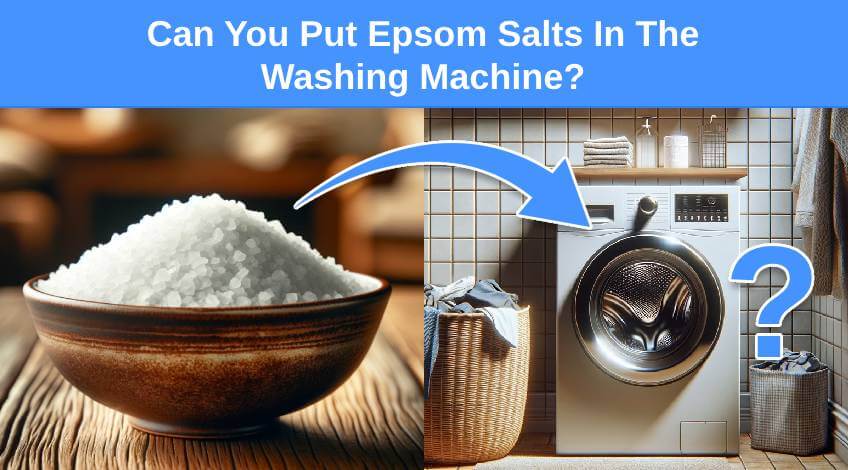
Can You Put Epsom Salts In The Washing Machine?
Epsom salts, also known as magnesium sulphate, have been popular for various household uses, including cleaning washing machines and freshening clothes.
But before you start tossing them into your laundry, here’s what you need to know: Yes, you can put them in the washing machine as long as they are completely dissolved, but there’s always the possibility of clogging or blockage in your machine due to the minerals in them, and the salts can be too harsh and abrasive for most fabrics.
There is also a chance of Epsom salts irritating your skin, especially if you’re allergic to magnesium sulphate.
Hence, if you want to use Epsom salts to clean your washer or to make your clothes smell fresh, there are better commercial and even natural alternatives such as white vinegar that’ll give you the benefits with less or no side effects.
Reasons Why You Shouldn’t Use Epsom Salt In Your Washer
Yes, you can put Epsom salts in your washer. However, there are many reasons why you shouldn’t.
While it’s true that Epsom salts can be dissolved in hot water, making them seemingly usable, here are the reasons why you should reconsider:
Epsom Salt Clogs Your Washer
Sure, you can dissolve Epsom salts in hot water, but there’s a catch. The minerals might not always fully dissolve in the washer, leaving a residue that could clog your machine’s pipes and drains.
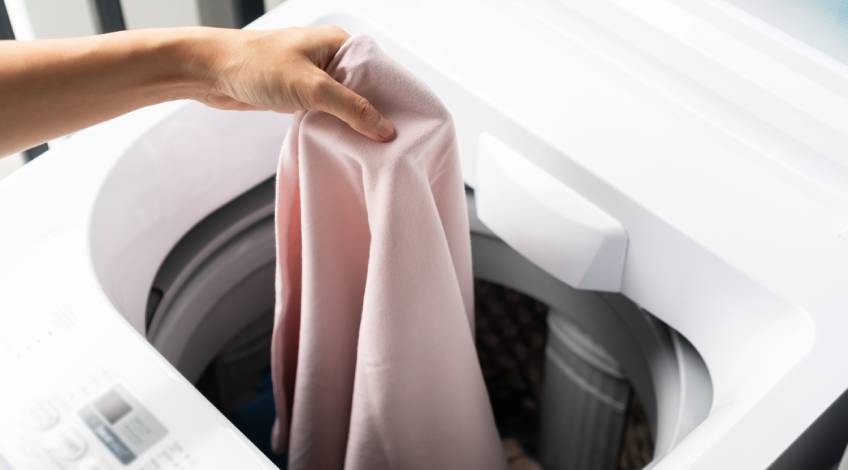
This is especially the case if you’re using lower temperatures in your wash cycles. Over time, this can lead to reduced efficiency and costly repairs.
DID YOU KNOW? Epsom salt is not actually a salt and does not contain sodium. It just looks like it!
Epsom Salt Increases Water Hardness
Primarily composed of magnesium sulphate, Epsom salt can elevate water hardness. In areas with hard water, this can result in limescale and mineral deposits in your washing machine, affecting its performance and leaving clothes looking dull.
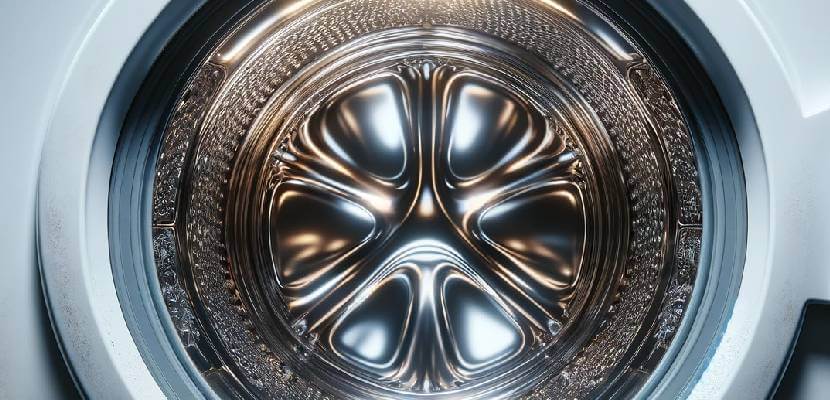
DID YOU KNOW? Water is considered “hard” when it has elevated levels of calcium and magnesium. Since Epsom salt is magnesium sulphate, mixing it with water will just increase its hardness.
SEE ALSO: Does Hard Water Make Your Laundry Smell? (& What to Do)
Epsom Salt Makes Your Clothes Stiff
The minerals in Epsom salt can leave a residue on fabrics, making them feel stiff and less comfortable.

This residue can accumulate, compromising the softness and absorbency of items like towels and bed linens. Don’t be surprised when your fabrics suddenly have a sour odour, especially when they come in contact with sweat and bacteria.
Epsom Salt Counteracts Detergent
The magnesium sulphate in Epsom salt may interfere with the chemical composition of laundry detergents, reducing their ability to lift dirt and stains from your clothes effectively.
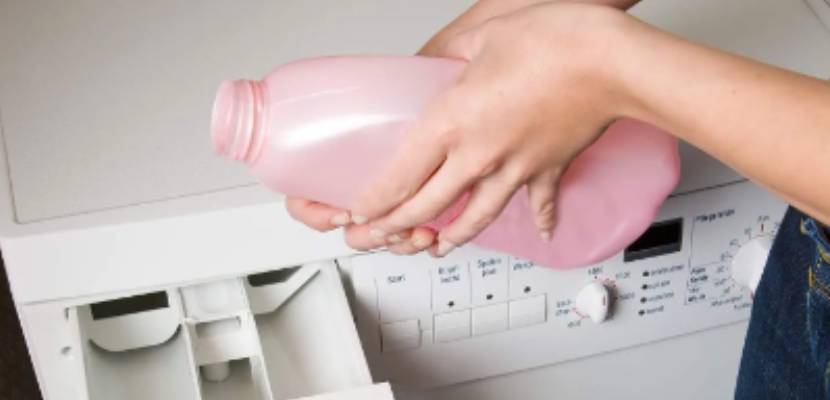
As a result, instead of helping with your laundry sessions, the Epsom salt could lead to a waste of time and resources!
Best Alternatives For Epsom Salt In The Washing Machine
Now that you know Epsom salt isn’t that effective for use in the laundry room, here are the top alternatives that will help you achieve the desired results:
Shop-Bought Cleaners
There are plenty of laundry detergents and cleaners that are designed specifically for use in washing machines, and you can get one that will target your problem.
As an example, if you want to use Epsom salt as a solution to hard water in your washer, using a descaler such as Pro-Kleen may give you better results.
- Say hello once again to an odourless washing machine and clean, fresh smelling clothing with this 2-in-1, powerful washing machine cleaner and descale
- Many washing machines produce smelly odours due to the build-up of mildew, bacteria and mould from soap scum
Fabric Softener
If you want to make your clothes or bedding soft and fluffy, or you want them to smell like they’ve been spritzed on with perfume, your best bet would be to use a fabric softener.
Using a quality fabric softener will enhance the softness of your laundry, leave it smelling fresh, and will not contradict the effects of detergent. Also, compared to using Epsom salts, they will leave less residue in the washing machine.
- Comfort Pure Fabric Conditioner is the UK’s number one fabric conditioner for sensitive skin*
- This fabric softener is hypoallergenic, dermatologically tested and gentle next to sensitive skin
Distilled White Vinegar
For a natural alternative, distilled white vinegar works wonders. Its acidic properties act as a disinfectant, softener, and freshener.
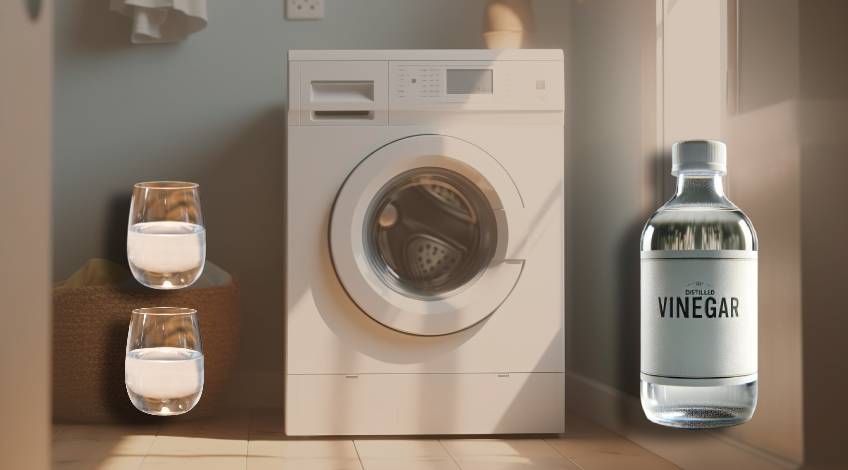
Use it to clean your washing machine by adding a cup or two to the fabric softener compartment, then run the hottest and longest empty wash cycle. Once done, run another cycle to remove remnants of the vinegar in your machine!
SEE ALSO: How To Use White Vinegar In The Washing Machine (and why!)
Dryer Balls
If softening clothes is your goal, consider using dryer balls made from rubber or wool. These eco-friendly alternatives to traditional fabric softeners are reusable and won’t leave residue in your washing machine.
TIP: For many, using wool dryer balls is better as they are more sustainable and do not make loud noises compared to the loud bangs a rubber dryer ball could make.
- Prime Built: 40g 7cm extra-large handmade laundry dryer balls spun tightly for extra rounds of drying
- Retain New Look: Wool dryer balls leave no fluff on clothes and instill a natural refreshing scent
Bicarbonate Of Soda
Bicarbonate of soda is excellent for softening water and cleaning washing machines. Use it in your laundry to combat hard water issues and maintain the efficiency of your washing machine.
Add 1/2 to 1 cup to your washer’s drum and run the longest, hottest empty cycle to achieve optimal results.
SEE ALSO: How To Make White Clothes Whiter With Baking Soda
Lemon Juice
For brightness, stain removal, and a fresh scent, incorporate lemon juice into your laundry routine. Like white vinegar, it also serves as an effective washing machine cleaner!
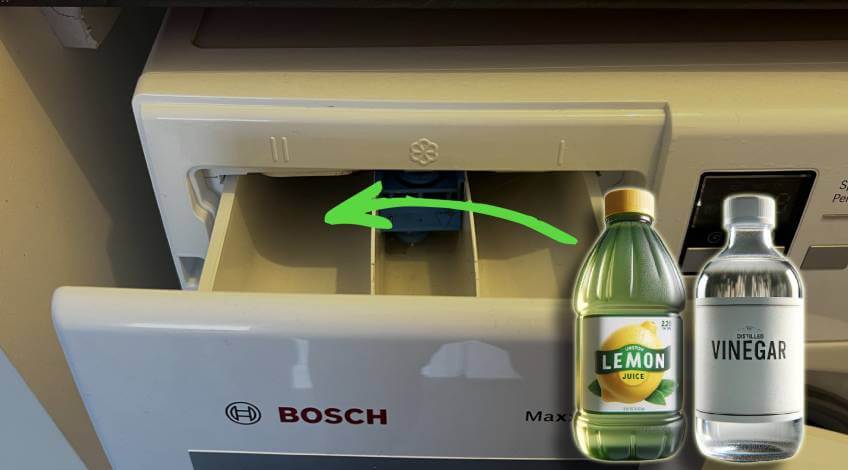
Just mix equal parts of lemon juice and white vinegar or warm water in the fabric softener compartment of your washer and start a hot, empty wash cycle. As always, do another rinse once it is complete to remove traces of the juice that may come in contact with your delicate fabrics.
SEE ALSO: Which Laundry Stains Can Lemon Juice Remove?
Other Ways To Use Epsom Salts (Safely!)
While Epsom salt may not be ideal for your machine and garments, it has numerous other household uses.
WARNING: Before anything else, make sure to carefully store Epsom salt and keep it out of children’s and pets’ reach. Consuming them can be toxic.
In The Bath
Epsom salt can work wonders after a stressful day. Just add 1-2 cups to your bath and soak to relax your body, and it can also help soothe sore muscles!
There are many benefits to an Epsom salt bath, as it can serve as a natural treatment for swelling, bruises, insomnia, and even sunburn! [1]
For Soaking Your Feet
If your feet have minor swelling after a long day, an Epsom soak can be a great help. Just add half a cup to a basin of warm water, then soak for relief from tired and achy feet.
There are even a lot of people saying that Epsom salt can remove toenail fungus or athlete’s foot! Just make sure to do your research for ways to make the soak more effective.
For Gardening
You can also use Epsom salt as a fertiliser in your garden to promote plant growth, especially in magnesium-deficient soils.
Also, Epsom salt can deter unwanted visitors such as slugs and beetles which could damage your plants greatly.
For Cleaning Tiles And Grout
Even if they’re not effective in the washer, you can still use Epsom salt for cleaning tiles and grout.
Just mix it with washing up liquid to create a paste, then use a soft-bristled brush to apply and scrub on dirty surfaces. The abrasive texture of the paste will be helpful in removing stains!
For Cleaning Pots And Pans
Epsom salts can be a very effective solution to greasy pots and pans.
Just sprinkle some of the salt on stubborn stains, and use a clean sponge to scrub them off. Allow the salt to sit for 10-15 minutes, then rinse the pots and pans under running water.
In The Washer, Epsom Salts Are A Hard Pass!
While Epsom salts might seem like a tempting addition to your washing machine, the potential risks of clogging, increased water hardness, and fabric stiffness highly outweigh the benefits you may get.
Going for safer alternatives like shop-bought cleaners, fabric softeners, distilled white vinegar, and even bicarbonate of soda are considerably safer for both your machine and garments.
Do you have questions? Ask away!
Frequently Asked Questions
While you can put Epsom salt in the washing machine, it’s not safe due to potential clogging, increased water hardness, and fabric stiffness. Safer alternatives include shop-bought cleaners, fabric softeners, and distilled white vinegar.
It’s not recommended to use Epsom salt with laundry detergent. The magnesium sulphate in Epsom salt may interfere with detergent, reducing its effectiveness in lifting dirt and stains from clothes.
Yes, Epsom salt can elevate water hardness due to its magnesium sulphate composition. In areas with hard water, using Epsom salt in the washing machine may lead to high amounts of limescale and mineral deposits, affecting machine performance.
For swelling reduction, soaking in an Epsom salt bath for 15-20 minutes is generally recommended.
Apart from the washing machine, Epsom salt has various household uses. It’s beneficial for baths to relax muscles, soaking feet for relief, as a fertiliser in gardening, and for cleaning purposes, especially in tiles, grout, and greasy pots and pans.
Also, follow us on Pinterest ...




